#beneath the rising
Explore tagged Tumblr posts
Text


summaries from storygraph for both under the cut
Beneath the Rising (horror/sci-fi) - Nick Prasad has always enjoyed a quiet life in the shadow of his best friend, child prodigy and technological genius Joanna ‘Johnny’ Chambers. But all that is about to end.
When Johnny invents a clean reactor that could eliminate fossil fuels and change the world, she awakens primal, evil Ancient Ones set on subjugating humanity.
From the oldest library in the world to the ruins of Nineveh, hunted at every turn, they will need to trust each other completely to survive…
Natural Beauty (horror/literary) - Our narrator produces a sound from the piano no one else at the Conservatory can. She employs a technique she learned from her parents-also talented musicians-who fled China in the wake of the Cultural Revolution. But when an accident leaves her parents debilitated, she abandons her future for a job at a high-end beauty and wellness store in New York City.
Holistik is known for its remarkable products and procedures-from remoras that suck out cheap Botox to eyelash extensions made of spider silk-and her new job affords her entry into a world of privilege and gives her a long-awaited sense of belonging. She becomes transfixed by Helen, the niece of Holistik's charismatic owner, and the two strike up a friendship that hazily veers into more. All the while, our narrator is plied with products that slim her thighs, smooth her skin, and lighten her hair. But beneath these creams and tinctures lies something sinister.
11 notes
·
View notes
Text
Premee Mohamed's hit novel Beneath the Rising dares to ask: what if the REAL eldritch horrors are the friends we made along the wT
2 notes
·
View notes
Text
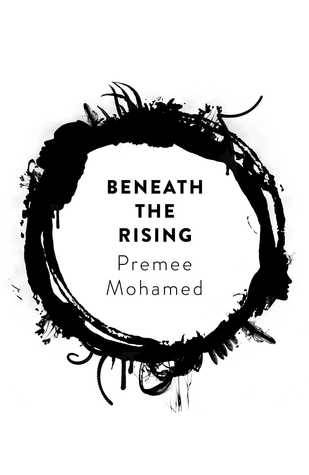
Beneath the Rising by Premee Mohamed
By: S. Qiouyi Lu
Issue: 24 February 2020
Nick Prasad has always been Joanna “Johnny” Chambers’s sidekick. Friends since a young age, Johnny has rocketed into an early and brilliant career as a child prodigy scientist, while Nick has lived a quiet, mundane life in which his biggest concerns are work and family. But the two of them still have a regular, teenage friendship, one filled with banter and misadventures. So when Johnny comes up with a new invention that could change the world, Nick doesn’t think much of it at first: after all, this is the seventeen-year-old girl who has already fitted the world with solar panels, created lifesaving medications, and perfected tools that assist millions of people’s lives—to name just a few of her accomplishments.
When strange things start to happen, Nick soon realizes that this invention isn’t like the others. An aurora borealis that shouldn’t be visible from their latitude heralds the coming of monstrous creatures, relentless in their pursuit of Johnny and her new invention. Bit by bit, the scale of what’s happening comes together: there are other realms beyond ours where terrible evil lurks and waits for its opportunity to trigger the next apocalypse. Those beings, “The Ancient Ones,” are responsible for the annihilation of civilizations ranging from Carthage to Cahuachi to Çatal Hüyük to Atlantis. And now, they’re after Johnny’s invention and the power it can unleash to destroy the world again.
But that’s not all. Suspicious of how much Johnny knows about the origin of these monsters, Nick pries the truth out of her and discovers that she’s made a covenant with the Ancient Ones. One of their terrifying pursuers, Drozanoth, is here to uphold that covenant, and will do anything to make Johnny hand over the invention responsible for calling the Ancient Ones back to Earth. Now, only she has any idea how to close the gates that are opening between realms. Determined to help stop the apocalypse, Nick embarks on a wild scavenger hunt with Johnny across the Maghreb and the Middle East to gather the items they need to put an end to the invasion.
Beneath the Rising, Indo-Guyanese author Premee Mohamed’s debut novel, is a rollercoaster of an experience. Although Mohamed draws from cosmic horror tropes as classic as Lovecraft’s, she challenges the oppressive foundations on which Lovecraft built his career. The novel is set in an alternate history shortly after a failed terrorist attack on the World Trade Center on September 11, 2001. The impact of September 11 doesn’t go unnoticed: instead, it, and the period setting of the early 2000s, deeply inform the characters’ every movement through the world and the global context around them. Nick, who is Indo-Caribbean and often refers to himself as “brown,” details the various ways in which his racial and class background affect how he sees the world, and how the world sees him. Unlike Nick, Johnny, the wonder-kid know-it-all seemingly blessed with endless genius, is White and rich. Although the sexism she faces is made clear, her privilege on other axes is called out in a way that feels natural to the characters and important to the narrative.
Lovecraft’s work often relies on racism to fuel its narrative and to lend horror and dread to cosmic horror elements. Mohamed, on the other hand, lays out the intersecting foundations of that marginalization and shows how those systems of oppression are the all-too-mundane backdrop against which otherworldly cosmic horror can play out. On top of that, Mohamed brings a genuinely global scope to her doomsday narrative. It is not just the West that faces an imminent catastrophe in Beneath the Rising. Rather, most of the main events occur in the Maghreb and across the Middle East. The rise and fall of civilizations across a broad set of cultures at the hands of the Ancient Ones feels like a smooth integration of all parts of the world, creating a truly global and historically linear scope of events that adds urgency to the narrative.
When it comes to the technical details of craft, Beneath the Rising shows Mohamed’s masterful command of description, pace, and emotion that renders powerful characters and settings. The prose is lean and deliberate, a short story writer’s novel. Mohamed, who also has several short fiction publications to her name, makes sure that every sentence, every paragraph, every simile serves multiple purposes. A sentence can reveal period- and character-appropriate details while also being embedded in an unusual, yet apt, metaphor that vividly describes and furthers the events of the story:
[Johnny] was trembling so hard she was almost flickering, like a poorly-tracked VHS tape. […] This [fear] felt more like something from outside of me, like secondhand smoke, greasily invisible, sinking into my pores, blown from someone unseen. (pp. 56–58)
Mohamed’s command of the rhythm of a sentence shows through in her control over the pace of the story as well. When Nick and Johnny have room to breathe, the prose is denser and slower as it lingers on fuller descriptions.
In the moment of relative safety I craned my head to try to take it all in, wishing I had sunglasses or a hat—it was so bright it just seemed like a spangled kaleidoscope of car windows, men in suits, tiny booths hawking electronics, sunglasses, clothing, CDs, food, tiles, everyone gabbling around me in languages I didn’t know, plus blessedly recognizable if not actually comprehensible French and English. People bumped and buffeted me apparently without even noticing. I had been picturing … I don’t even know what. Some mud-brick city from Raiders of the Lost Ark? Flowing white robes? Tintin books, for absolute sure. (p. 144)
But when Nick and Johnny are on the run, Mohamed’s prose goes into fight-or-flight mode, highlighting only the barest of actions, reactions, and sensory details. The reader barrels along, breathless, with the characters.
I shut the closet door, hearing first a bang, and then—oh shit—the musical tinkle of falling glass from the living room. A multilegged shadow, all spikes and floppy appendages and translucent nodules, firmly struck the hallway wall, like an ink stamp. I cast about, left, right, left, right. Kids. Bedroom. Two quick steps: empty. (p. 103)
At the same time, Beneath the Rising isn’t just an action-adventure chase after a string of McGuffins against a backdrop of tentacles, shadows, uncanny eldritch pawns, and imminent apocalypse. It’s also a slow tale about a different kind of unrequited love between two teenagers who were forced to grow up too early, and who have never had the space to address their lingering PTSD after surviving a shooting during a hostage crisis. Woven between the multidimensional chaos of the Ancient Ones’ return is a poignant, melancholy tale of what growing out of childhood ideals means and feels like. As Nick confronts the codependent nature of his love for Johnny, who turns out not to be the person he thought she was, he shores up memories and emotions that illustrate the processing he’s doing internally while also showing his growth as a character. The vindication of his fury and betrayal feels both earned and deserved.
The biggest strength of the novel, however, comes from the shocking reveal toward the end of the book that explains the true nature of Nick’s “friendship” with Johnny, and why he was even dragged along on such a dangerous journey he had no hand in creating. I’ll be including spoilers from here on in order to fully discuss the impact of the ending.
Instead of being a magnanimous scientist who simply wants to help the world, Johnny practices “altruism” as a reflection of her own need for power and worth. She may be doing good with her work, but that doesn’t mean that she can’t channel great evil and also be a villainous mad scientist. Her prodigal power and inhuman brilliance stem from a covenant she struck with the Ancient Ones. In exchange for time off of her life, Johnny can speed up her mind, like a supercomputer’s processing power getting a boost, to do what she does. But with that covenant came another clause that Johnny only reveals to Nick when she can no longer hide it. Afraid that her unbelievable talent would alienate her from the rest of the world, leaving her alone forever, Johnny bargained for Nick to be forever by her side as a companion. Nick’s true relationship to Johnny is as a slave.
This Faustian covenant, however, didn’t have to take place. Johnny admits that, if she’d refused the covenant, she would have still lived a comfortable, successful life, and would have still been a great scientist. But, lured in by power and the opportunity to influence the world, saving millions of lives in the process, Johnny agreed to a deal with the Ancient Ones. She justifies her actions with all the good she’s done—but Beneath the Rising is, at its heart, a novel about the true cost of power, and whether the ends can justify appalling means. After all, the Ancient Ones would never have been attracted to the world if Johnny had refused the covenant in the first place. The millions of lives potentially lost in a global apocalypse don’t factor into Johnny’s calculations of how much good she does and her positive impact on the world.
Therein lies the extended metaphor that forms the secret crux of Mohamed’s narrative: Johnny’s covenant, and Nick’s role as her “companion,” are tools to critique the legacy of colonialism; in particular, slavery. In a key character turning point, Nick reminds Johnny that his family, of Indian descent and from Guyana, descends from indentured servants who were exploited for the sake of the British Empire. Nick takes deep offense at the way Johnny doles out money, as if to buy people and solutions to her problems. Johnny’s race is actually the most insignificant reflection of her position as a symbol for colonization and empire. It is her utilitarian attitude toward people and her perceived self-importance as a representative of “the greater good” that motivate the true horrors that Johnny commits. Loyalty can always be bought. Nick’s loss of agency, the loss of his potential livelihood, and the psychic toll of not being a genuinely free individual, never enter into Johnny’s mind. Nick isn’t truly a friend, an equal, or even a person to her. He is a sidekick, a person to be uprooted from place to place so that Johnny can always have someone to carry her when she is weak, provide strength when she has none, and sacrifice his life if she needs him to. Nick is merely a resource she can exploit as an extension of herself. How many families, societies, and whole cultures have similarly been torn apart to support the advancement of Western civilization?
No matter how euphemistically slavery is named, whether as “indentured servitude,” “incarceration,” or “debt bondage,” it is ultimately the real covenant that robs people of their time and life force. The lasting socioeconomic impact of slavery, too, oozes through Beneath the Rising as the gulf in wealth between Nick and Johnny, as well as the gulf in opportunity and attitudes toward self-worth between them. No eldritch covenant needs to be made for oppressors to keep subjugating the oppressed. Through Johnny, the whole empire of colonization is laid bare and exposed: for all the “advancement” purportedly created by colonizers, for all the status colonizers lay claim to, millions of people whom colonizers considered as second-class were sacrificed. When Johnny sets out to “save the world,” what she is truly saving is the status quo of her own world of privilege. Nick’s world, the world of the subjugated and oppressed, has long since been lost.
On a micro scale, Beneath the Rising is the best inversion of the sidekick trope I’ve ever seen. The effect of a reckless superhuman crashing through the world are called out early: who will clean up? Who will pay for property damage? Who will handle witness protection? Insurance? Jobs? How will people recover from the trauma of such a disruptive event? Then, when the true nature of Nick’s slavery is revealed, we see the rare story of a sidekick walking away—of codependency not being romanticized, but called out for the real destruction it can cause. Nick’s anger and betrayal are validated narratively as he sets boundaries at last and recovers from Johnny’s exploitation. The scale of Johnny’s betrayal and the evilness of her act are never downplayed, even as Johnny herself, like many benefitting from the legacy of colonization, remains clueless of her impact, even going so far as to still believe that she is doing good, and that all the devastation behind her can be a footnote to her altruism.
Beneath the Rising is a near-flawless debut novel. While it works well as a standalone, the story and worldbuilding leave room for sequels as well. Multilayered and richly rendered, Beneath the Rising is a darkly humorous romp through unspeakable cosmic horrors that also paints a portrait of two hurt teenagers grappling with their place in the world and their relationship with each other, all while navigating complex inner worlds impacted by the legacies of colonization, slavery, racism, and sexism. Like a doomsday device, Beneath the Rising is compact, powerful, and devastating as it hurls the reader through a brilliantly crafted narrative. Prepare for an epic journey, and don’t forget to bring a barf bag for the turbulent ride.
4 notes
·
View notes
Text
Ordinary rich people buy houses, plural. The super-rich make homes everywhere. People like her, though, don't need a home. They have nothing they're worried about keeping. They know they can replace anything, literally anything, even if it's supposed to be one of a kind.
-On Johnny, Beneath the Rising by Premee Mohamed
18 notes
·
View notes
Text
I thought: but someone has to fight Them, all the same, even if no one knows how. In the books, in the movies, someone always has to fight back. Not to end up in the stories later, not to be rewarded with fame and praise and book deals. They just knew someone had to fight. Had to.
from Beneath the Rising (The Void #1), by Premee Mohamed
#quotes#beneath the rising#the void trilogy#premee mohamed#horror#adventure#thriller#cosmic horror#science fiction#scifi#sff#books
3 notes
·
View notes
Text
Influence clusters, contaminates, then maims; and it is made of money. When you have money you think the way people with money think, because that’s the influence. Ordinary rich people buy homes, plural. The super-rich make homes everywhere. People like her, though don’t need a home; they have nothing that they are worried about keeping, they know they can replace anything, literally anything, even if it is supposed to be one of a kind.
from Beneath the Rising (The Void #1), by Premee Mohamed
#quotes#beneath the rising#the void trilogy#premee mohamed#horror#adventure#thriller#science fiction#scifi#sff#cosmic horror#books
2 notes
·
View notes
Text
Beneath the Rising, by Premee Mohamed

⭐⭐⭐⭐
At 17, child prodigy Joanna "Johnny" Chambers stands poised to deliver her greatest invention yet. But when her clean energy generator draws the attention of eldritch horrors, she turns to her long-time best friend, Nick Prasad, to help her set things right. Nick is everything Johnny isn't: struggling financially, of Indo-Carribean descent, and decidedly average in the intellectual department. But as the danger escalates, he discovers he's the only person who can stand by Johnny's side against the monsters that seek to rule over humanity.
I picked this up for the spooky horror monsters, but wound up loving it for the characters. They're such a pair of unlikely friends, a detail that isn't lost on them in-universe. I did have some concerns as I was reading about how lopsided the friendship seemed to be, along with some of Nick's attitudes towards Johnny, but I never should have doubted the author. She knew exactly where she was going with all of that, every single word and implication of it intentional, and it was fantastically done.
The story itself is set in an alternate timeline, early-mid 2000s, and takes the characters across the world from Canada to the Middle East, dodging the authorities and inter-dimensional horrors alike. Something I really enjoyed was that it was told from the perspective of the sidekick. Typically you get the story from the perspective of the hero, so the unique perspective put a new spin on the genre. I would've liked to learn more about the magic system, but maybe that's coming in the sequels.
Now, the thing I didn't like. Minor spoilers ahead, for an event in the first half of the story. I really don't like the trope where an innocent animal/person is hurt or killed just to demonstrate that the villain means business or to motivate the hero. It makes me feel bad. And, unfortunately, this book uses that trope. I was not a fan, and actually almost DNFed the book after that happened. I think that I will continue the series, as the rest of it was fantastic(though I wonder where it's going from here, as the story seemed to wrap up perfectly). I just won't be letting myself get attached to anything that seems too vulnerable.
0 notes
Text
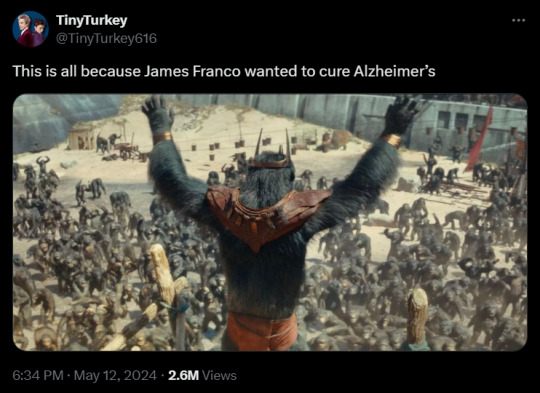
#planet of the apes#beneath the planet of the apes#escape from the planet of the apes#conquest of the planet of the apes#battle for the planet of the apes#rise of the planet of the apes#dawn of the planet of the apes#war for the planet of the apes#kingdom of the planet of the apes#james franco#twitter
2K notes
·
View notes
Text
POV - You're watching Planet Of The Apes and you start siding with the apes over the humans
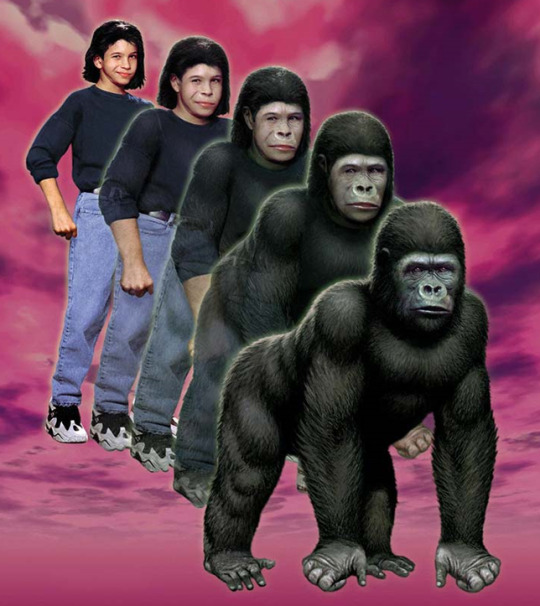
#planet of the apes#animorphs#rise of the planet of the apes#dawn of the planet of the apes#kingdom of the planet of the apes#war for the planet of the apes#beneath the planet of the apes#escape from the planet of the apes#conquest of the planet of the apes#battle for the planet of the apes#war of the planet of the apes#reboot pota#original pota#pota#tim burton pota#gorilla#chimpanzee#chimp#orangutan#marco#mine#morphing#ka applegate#katherine applegate#wes ball#andy serkis#caesar#noa#owen teague#mae
1K notes
·
View notes
Text

The “Real” You?
#crocdocz art#wish people talked about Rise and her identity issues more…#She’s so interesting when you look beneath her “omg haii senpai” surface level#Persona 4#rise kujikawa#rise persona 4#kujikawa rise#ibispaintx
581 notes
·
View notes
Text

Guys I think he likes Leo just a lil bit
#art#artists on tumblr#rottmnt#tmnt#rise of the teenage mutant ninja turtles#samurai rabbit#yuichi doodles#yuichi#yuichi usagi#rottmnt leo#leoichi#leosagi#leonardo hamato#rise leo#tmnt leonardo#I want to crush them beneath my thumb#They're so STUPID ohmygof guys pls they're so everything
419 notes
·
View notes
Text

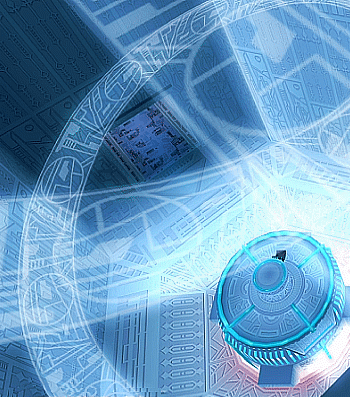

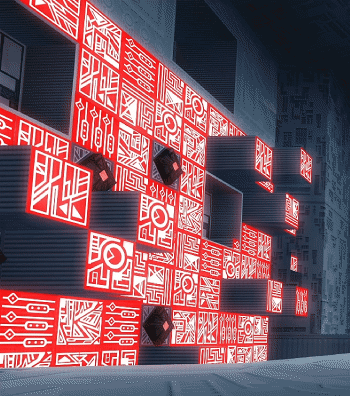



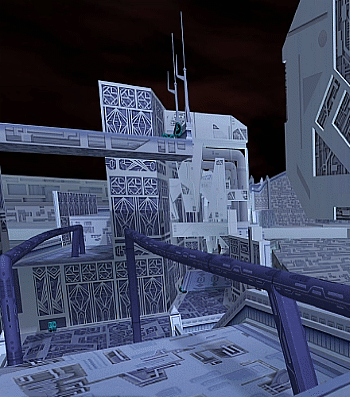
Kingdom Hearts Dream Drop Distance - The World That Never Was
#kingdom hearts dream drop distance#khddd#the world that never was#scenery#my gif#i really love how sora's side of this world is dark and eerie and fully leans into how dreams can distort and twist reality#the city looks mostly normal at first aside from the ghostly fog that seeps down from buildings and drifts along the floor and rises up#but as you keep going the ground beneath you is no longer a street but rather the faces of more buildings that stretch over an abyss#it's no longer the sprawling city you first arrived in but instead an uncanny one way path towards your destination#the buildings now twist and contort and are crooked and grow out of the ground in all kinds of ways that make no logical sense#it's the first time that a sleeping world looks easily distinguishable from the real world. it looks wrong. like a nightmare#meanwhile riku's half contrasts heavily by appearing to be fairly normal#the interior of the real castle never made any practical sense so nothing here feels too out of place compared to how it usually looks#it shows how much more in control riku is in comparison to how sora is losing his grip on reality as he descends further into their trap#cool stuff! love me some environmental storytelling#also i finished giffing every world in this game yippee i'm done (is covered head to toe in blood)
587 notes
·
View notes
Text
[ cw: referenced mind control / parasites / intrusive thoughts (only in the tags) / ]
(This is just a fun “what if” so bear with me-) I know we make mention of the potential for Krang remnants to be stuck with Raph and/or Donnie, but Mikey and Leo also had a moment with the other two where a type of Krang goop was crawling beneath their skin (this being immediately after Raph broke free.)
So I raise you the potential for all four of them to have a bit of that Krang parasite on them…and for that to have unforeseen consequences.
#rottmnt#rise of the teenage mutant ninja turtles#rottmnt headcanons#yeah I remember that moment where the boys were all confined after Raph broke free and I’m shocked it doesn’t get brought up more tbh#maybe I’m remembering it wrong? but I swear they have Krang gunk crawling beneath their skin#it was darker Krang goo than normal so maybe that’s why it didn’t spark as much attention but hey - Krang goo is Krang goo and angst thrive#something in particular that’s been on my mind is the very very scary potential of like#okay so- you know how the Krang have a hivemind?#well…Krang One’s main sworn goal was moved from taking over the earth…to focusing on Leo alone to take his wrath#and…so…#not a fun time for anyone!#intrusive thoughts from every bro whispered by the Krang parasites in their heads#all of them - Leo included - having to refrain from wanting to harm Leo as that’s the last ‘goal’ the Krang had#mAY BE TOO DARK BUT MY MIND SAID HAHHA WHAT IF
193 notes
·
View notes
Text

Dergtober Day 29: Warrior
I did a really quick drawing today of Alps! They are a warrior who despises war and usually only fights to try to end it. They usually are pretty calm, but I figure any situation where they are forced to fight would make them pretty angry that they have to fight, hence the expression.
#flight rising#frfanart#dergtober 2024#Dergtober#pinkerlocke#beneath the boughs#alps#petall art#petall ponderings
79 notes
·
View notes
Text
*putting on my tinfoil hat for a sec*
Okay, so this has been on my mind for a while. Since the reboot Planet of the Apes trilogy has, arguably the best version, of Caesar
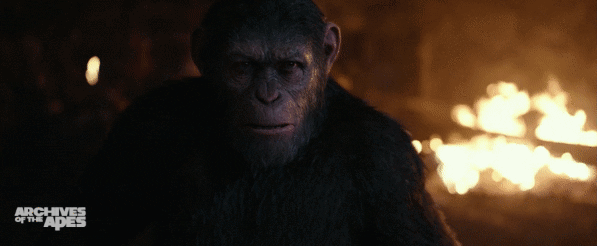
Who is loosely based on the OG franchise's version, and a bit of Julius Caesar.

And reboot Caesar eventually has a son named Cornelius
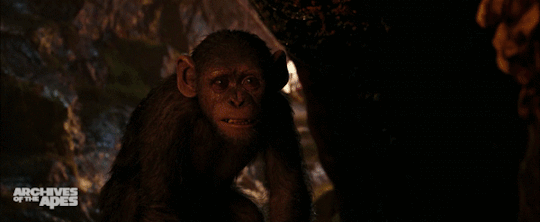
Who's named not only after his mother, but both characters are named after one of the OG franchise's favorite apes from the 1968 film.
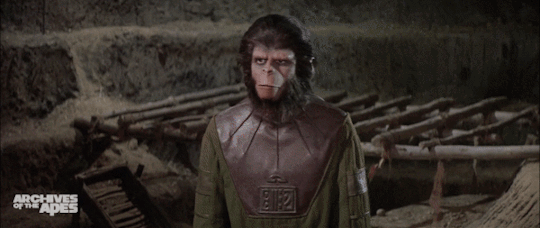
If the sequel to Kingdom jumps ahead a few years like Dawn, Noa and Soona might have children.

Aaaand if they have a daughter, I think I have an idea of who she will be named after from the OG franchise!!!!
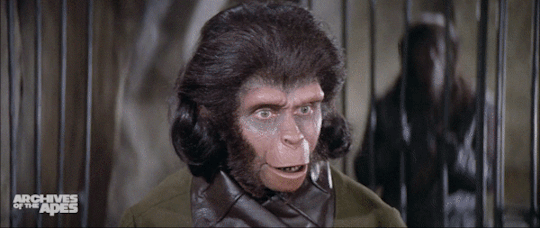
ZIRA!!!
AND IT MAKES A LOT OF SENSE! Because of Noa's newfound interest in science (fixing the cattle prod) and space (the observatory).

I know Zira in the OG films is an animal psychologist, I think it'll be kind of neat if reboot Zira had an interest in space!
#movies#kingdom of the planet of the apes#planet of the apes#rise of the planet of the apes#dawn of the planet of the apes#war for the planet of the apes#beneath the planet of the apes#escape from the planet of the apes#conquest of the planet of the apes#battle for the planet of the apes#noa#soona#caesar#cornelius#zira#pota noa#pota soona#pota caesar#pota cornelius#pota zira#planet of the apes theories#this is my crazy take lol
103 notes
·
View notes
Text
It’s so tough to be young; it’s so tough that the only way I assume adults are able to function is that they have forgotten this, that they don’t remember a time when they didn’t know anything and knowledge was kept from them, and they railed at the gatekeepers. And whatever the gatekeepers were—time, bosses, parents, teachers, luck—they would not have remembered being young either. School was a fucking waste if all it did was let you graduate with a head full of questions and no way to get them answered.
from Beneath the Rising (The Void #1), by Premee Mohamed
#quotes#beneath the rising#the void trilogy#premee mohamed#horror#adventure#thriller#cosmic horror#science fiction#scifi#sff#books
3 notes
·
View notes